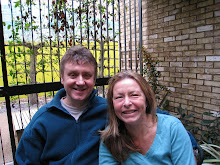We've written about water before. Living in Asmara we have a much easier life than people living in the villages. For that reason I'm going to quote here from the writings of another volunteer, Joe, who has lived in a small village for the last 18 months and will come to the end of his 2 year posting in the summer. He writes much more eloquently than I could.
The village pump has been broken for six months and I have, reluctantly, been left with no choice but to tell VSO not to replace me in my village when I leave. I know I did a big note about water before and I’m sorry to bang on, but the truth is I can’t help it. It dominates my life and my impression of Eritrea in a way that only the health issue comes even close to. Water access and the massive inconvenience of trekking to wells with my jerrycan at 6 a.m isn’t why I am leaving but it is a big mark in the ‘NO’ column and something I am greatly looking forward to having easy access to again.
About a month ago I was precariously balanced above a muddy, sludgy pool of water trying to fill up my jerrycan when I slipped and fell into the water. After a flash of panic (I can’t swim) I laughed aloud when I realised that the water only came up to my waist. This story is now a source of great hilarity amongst my VSO comrades and Eritrean colleagues alike, and I chuckle too; and how many people can say they’ve fallen into a well in Africa?
But it could have been much worse. Only two weeks ago a grade 3 student of my school fell into just such a well and drowned.
That boy was the sixth child under 16 years old that I know of who has died in the time that I’ve lived in my village. There may be more; double the number would not surprise me.
It is common amongst people writing about Africa to say “Life is cheaper there”. It isn’t. Eritrean mothers who lose their children grieve just as heavily as any woman but they do not abandon themselves to it in the way that we do in our culture because they do not have the luxuries of time that we have. You cry inside and out and then you pick yourself up and carry on because you have to. There are other children to feed, elderly mothers to care for, water to fetch. Animals on whom your agricultural income might depend to feed and water. Of course you will be surrounded by friends and relatives for support, at least some of whom may have been through the same trauma.
But you don’t stop. Stop your life and someone else suffers. Someone else can die.
Monday, 26 January 2009
Subscribe to:
Post Comments (Atom)




No comments:
Post a Comment